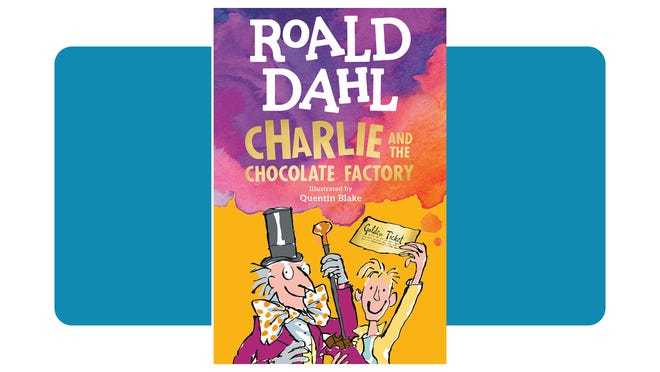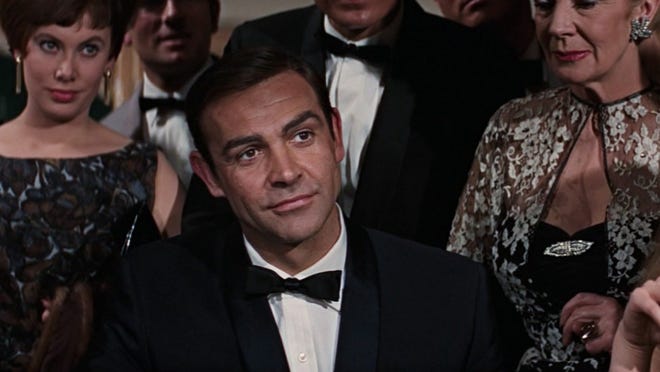Roald Dahl, James Bond are censorship’s latest victims. Who’s next?
Perhaps nothing illustrates the stupidity of our times better than the disturbing trend of “revising” classic books to make them palatable to a modern audience.
Applying current mores to the past – and forcing the past to conform to our “enlightened” ways – is patently unwise and smacks of something out of George Orwell’s “1984” or Soviet Union tactics.
It’s an attempt to control thought.
British children’s author Roald Dahl and James Bond creator Ian Fleming are the latest targets of the woke publishing world, and “sensitive readers” have been busy.
What do these popular authors think of this revision of their works? We have no way of knowing as both men died decades ago.
Dahl wrote the popular classics “Charlie and the Chocolate Factory”, “Matilda”, “James and the Giant Peach” and “Fantastic Mr. Fox”, among others. His works are known for being a little dark, and his eccentric characters have drawn generations of children.
“Fat” and “ugly” are taboo words
Some of the troubling words that might offend today’s sensitive kids — and which have been deleted in new editions of these books — include “fat,” “ugly,” and “black” (not used as a racial connotation). New lines have been added. Women get more exciting jobs.
Are those “bad” words?:Stanford’s Political Correctness Czars Consider “American” and “Boys” Harmful Words (No Joke)
“Female” has been changed to “Woman”. Also, gender-neutral words are preferred over offensive words like “men,” “mother,” “father,” “girl,” and “boy.”
A paragraph in The Witches talks about how the witches are bald under their wigs. Apparently that needed an addition of this line: “There are many other reasons women might wear wigs and there’s certainly nothing wrong with that.”
you have the idea

Dahl purists and free speech advocates have fought hard against this interference. And Penguin Random House, the publisher of Dahl’s books, has agreed to keep “classic” (that is, original) copies of his work in addition to the freshly scrubbed copies. But who knows how long it will stay that way.
“I think once you start applying the modern sensibility to any art of the past, or even art of today, that might deviate somewhat from orthodox thinking or mainstream opinions and perspectives, you limit the range of creative expression available in our really a society,” says Aaron Terr, director of public advocacy at the Foundation for Individual Rights and Expression,
“And I think a society that believes in creative and artistic expression certainly doesn’t rewrite books to avoid any possibility of offending potential readers.”
Progressives want to ban Amy Coney Barrett’s book:How can they think that’s okay?
First Dr. Seuss, now James Bond
Likewise, some of Fleming’s formulations are obviously too racist for today’s readers. And I wouldn’t be surprised if the Bond Girls got new roles too. (Pussy Galore, Kissy Suzuki, and Honey Ryder probably don’t sit well with modern women).

Such paraphrases undermine what the literature is about. Books aren’t just compelling stories—they’re windows into the past and past ways of thinking. They reflect the time in which they were written.
Just two years ago, Dr. Seuss – one of the most popular children’s authors of all time – in the crosshairs of the Cancel culture, and six books including McElligot’s Pool, On Beyond Zebra!, Scrambled Eggs Super!, and The Cat’s Quizzer were named ” racist and insensitive” and thus classified as unsuitable for publication.
Much like Dahl and Fleming, Dr. Seuss creator Theodor Geisel in a completely different time. These authors should not be penalized or censored for being alive at this point in time.
Author Salman Rushdie, who has faced attacks and years of threats over his books, called the descriptions of Dahl’s work “absurd censorship.”
A “dangerous new weapon”
Rushdie is joined by other high-profile critics.
“Amidst bitter struggles against book bans and restrictions on what can be taught and read, selectively editing works of literature to suit particular sensibilities could represent a dangerous new weapon.” tweeted Suzanne Nossel, CEO of PEN America, which promotes free speech in the publishing industry.
“Those who might applaud certain adaptations of Dahl’s work should consider how the power to rewrite books might be harnessed in the hands of those who don’t share their values and sensibilities.”
The left likes to blame the “book ban” on Republicans and parents, many of whom have legitimate concerns about what young children should be learning about race and gender in school.
However, these debates are not about literally ‘banning’ books, but about restricting children’s access. The books still exist and are easily accessible in our online world.
It is more insidious to fundamentally change words or context in existing books, or to prevent them from being published at all.
If Roald Dahl and Ian Fleming are now fair game for the Thought Police, what’s stopping the censors from “fixing” a book you love next?
Ingrid Jacques is a columnist for USA TODAY. Contact them at [email protected] or on Twitter: @Ingrid_Jacques